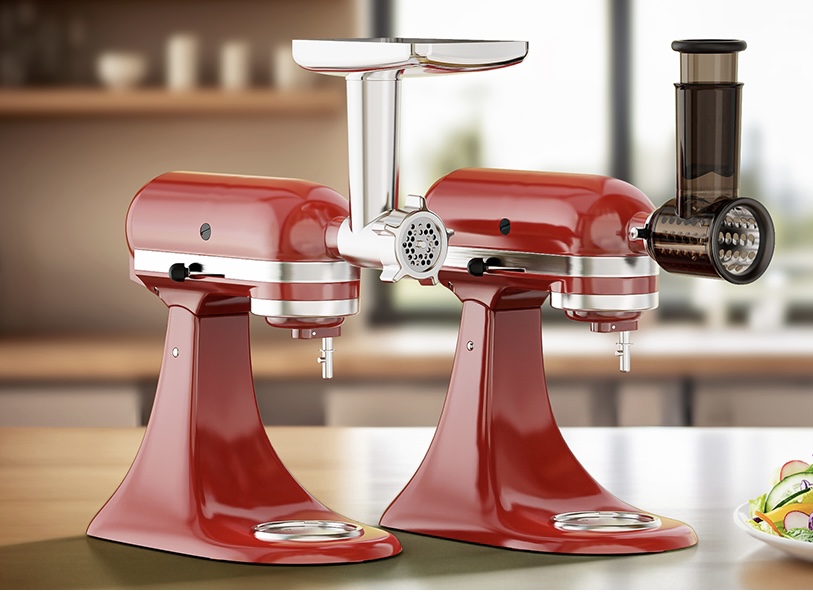
Investing in KitchenAid Stock: Is it Worth the Risk?

KitchenAid is a well-known brand in the kitchen appliance industry, offering a wide range of products including stand mixers, blenders, food processors, and more. The company has a long history of providing high-quality and innovative products to consumers around the world. In this article, we will evaluate the potential of investing in KitchenAid stock.
The purpose of this article is to provide an in-depth analysis of KitchenAid’s financial performance, market position, and growth prospects. By examining these factors, we can determine whether investing in KitchenAid stock is a wise decision.
KitchenAid’s history
KitchenAid was founded in 1919 by the Hobart Corporation, which initially manufactured stand mixers for professional use. The company quickly gained a reputation for its durable and reliable products. In 1986, KitchenAid was acquired by the Whirlpool Corporation, a leading manufacturer of home appliances.
Under Whirlpool’s ownership, KitchenAid expanded its product line to include a wide range of kitchen appliances for both professional and home use. The company also entered new markets and expanded its global presence. Today, KitchenAid is recognized as one of the top brands in the kitchen appliance industry.
Financial performance
In recent years, KitchenAid has experienced steady revenue and profit growth. The company’s revenue has increased by an average of 5% per year over the past five years. This growth can be attributed to strong demand for KitchenAid’s products and successful marketing strategies.
When compared to industry averages and competitors, KitchenAid’s financial performance is above average. The company has consistently outperformed its competitors in terms of revenue growth and profitability. This indicates that KitchenAid is well-positioned in the market and has a strong competitive advantage.
Market position and competition
The kitchen appliance industry is highly competitive, with numerous players vying for market share. However, KitchenAid has managed to establish a strong position in the market. The company currently holds a significant market share and is recognized as a leader in the industry.
KitchenAid’s main competitors include Whirlpool, GE Appliances, and Samsung. Each of these companies has its own strengths and weaknesses. Whirlpool is a well-established brand with a wide range of products, while GE Appliances is known for its innovative designs. Samsung, on the other hand, is a global leader in technology and offers a range of smart appliances.
Factors affecting stock value
Several factors can impact the value of KitchenAid stock. Economic and industry trends play a significant role in determining the performance of the company’s stock. A strong economy and growing demand for kitchen appliances can drive up the value of KitchenAid stock.
Company-specific factors such as product innovation and marketing strategies also influence stock value. KitchenAid’s ability to introduce new and innovative products to the market can attract investors and drive up stock prices. Additionally, effective marketing strategies can increase brand awareness and boost sales.
External events such as natural disasters or political changes can also impact stock value. These events can disrupt supply chains or affect consumer demand, leading to fluctuations in stock prices.
Risks of investing in KitchenAid stock
Investing in any stock carries inherent risks, and KitchenAid is no exception. Market volatility and uncertainty can lead to fluctuations in stock prices, making it difficult to predict future performance. Additionally, company-specific risks such as product recalls or supply chain disruptions can negatively impact stock value.
Regulatory and legal risks are also a concern when investing in KitchenAid stock. Changes in regulations or legal issues can have a significant impact on the company’s operations and financial performance.
Benefits of investing in KitchenAid stock
Despite the risks, there are several potential benefits to investing in KitchenAid stock. The company has a strong market position and a history of steady growth, indicating that there is potential for long-term growth and capital appreciation.
KitchenAid also offers dividend payouts to its shareholders. Dividends provide a steady stream of income and can be an attractive feature for investors. Additionally, there is potential for future dividend increases as the company continues to grow.
Investing in KitchenAid stock can also provide diversification to an investment portfolio. By investing in different industries and sectors, investors can reduce their overall risk and potentially increase their returns.
Dividend history and potential
KitchenAid has a consistent history of paying dividends to its shareholders. The company has increased its dividend payout over the years, indicating a commitment to returning value to its investors.
Analyzing dividend payout ratios can help determine the sustainability of KitchenAid’s dividends. A low payout ratio indicates that the company is retaining a significant portion of its earnings for reinvestment, which can lead to future growth. However, a high payout ratio may indicate that the company is distributing most of its earnings as dividends, leaving little room for future increases.
KitchenAid’s potential for future dividend increases depends on its financial performance and growth prospects. If the company continues to generate strong earnings and cash flow, it is likely that dividends will increase in the future.
Growth prospects and expansion plans
KitchenAid has a clear growth strategy in place to drive future expansion. The company aims to expand into new markets and product lines, leveraging its brand reputation and customer loyalty.
Expanding into new markets can provide KitchenAid with additional revenue streams and opportunities for growth. The company has already made significant progress in expanding its global presence, but there is still room for further expansion.
Technological advancements also present opportunities for growth. As smart appliances become more popular, KitchenAid can capitalize on this trend by introducing innovative and connected products to the market.
Expert opinions on investing in KitchenAid stock
Financial analysts and industry experts have varying opinions on investing in KitchenAid stock. Some experts believe that the company’s strong market position and growth prospects make it an attractive investment. They cite KitchenAid’s history of innovation and its ability to adapt to changing consumer preferences as key factors driving future growth.
Others, however, express concerns about the competitive landscape and potential risks associated with investing in the kitchen appliance industry. They caution that market volatility and regulatory risks could impact KitchenAid’s financial performance and stock value.
It is important for investors to carefully consider these expert opinions and conduct their own research before making investment decisions.
Comparison to other kitchen appliance companies
To fully evaluate the potential of investing in KitchenAid stock, it is important to compare the company to its major competitors. Whirlpool, GE Appliances, and Samsung are all significant players in the kitchen appliance industry.
When comparing financial performance and market position, KitchenAid stands out as a strong competitor. The company has consistently outperformed its competitors in terms of revenue growth and profitability. This indicates that KitchenAid is well-positioned for future growth and has a competitive advantage in the market.
However, each competitor has its own strengths and weaknesses. Whirlpool’s established brand and wide range of products give it a competitive edge, while GE Appliances’ innovative designs attract consumers. Samsung’s global presence and technological advancements also make it a formidable competitor.
Conclusion and recommendation
In conclusion, investing in KitchenAid stock has both risks and potential benefits. The company has a strong market position, steady financial performance, and a clear growth strategy. However, market volatility, regulatory risks, and competition are factors that investors should consider.
Based on the evaluation of risks and potential benefits, it is recommended that investors carefully assess their own risk tolerance and investment goals before making a decision. Consulting with a financial advisor can provide additional guidance and help investors make informed investment decisions.






